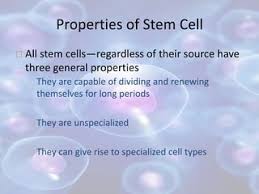Cord blood therapy, often hailed as a medical marvel, offers a range of applications and continues to advance at a remarkable pace. In this article, we will take a deep dive into the world of cord blood therapy, its current applications, and the exciting advancements that are shaping the future of medicine.
The Power of Cord Blood
Cord blood, found in the umbilical cord and placenta, is rich in hematopoietic stem cells. These stem cells are the cornerstone of cord blood therapy, with the potential to transform into various blood and immune system cells.
Current Applications
Cord blood therapy has already demonstrated its efficacy in several medical applications:
1. Treating Blood Cancers: Cord blood stem cells have been instrumental in the treatment of leukemia, lymphoma, and other blood cancers. They can replace damaged or cancerous cells with healthy ones, offering hope to patients.
2. Immune Disorders: Cord blood therapy is used to treat immune system disorders, providing a new lease on life for those with conditions like severe combined immunodeficiency (SCID).
3. Genetic Disorders: Inherited genetic disorders, such as sickle cell anemia and thalassemia, can be managed through cord blood therapy, mitigating the symptoms and improving patients’ quality of life.
Advancements in Regenerative Medicine
Cord blood therapy is at the forefront of regenerative medicine, where the focus is on repairing and replacing damaged tissues and organs. Recent advancements include:
1. Neurological Conditions: Promising research explores the use of cord blood therapy for treating neurological conditions like cerebral palsy and traumatic brain injuries. While still in experimental stages, the results are encouraging.
2. Autoimmune Disorders: Advancements in using cord blood to treat autoimmune disorders, such as multiple sclerosis and lupus, are bringing hope to patients seeking alternative treatments.
3. Orthopedic Applications: Researchers are investigating the potential of cord blood therapy in orthopedics, particularly for conditions like osteoarthritis and joint injuries.
Personalized Medicine
Cord blood offers a unique advantage in personalized medicine. The stem cells can be stored for an individual’s lifetime, providing a source of genetically matched cells for tailored treatments.
Ethical Considerations
As cord blood therapy advances, ethical questions surrounding its use have emerged. Issues related to the commercialization, ownership, and accessibility of cord blood require careful regulation to ensure responsible and equitable practices.
Conclusion: A World of Possibilities
Cord blood therapy is a shining example of the incredible strides that medicine has taken in recent years. From treating life-threatening blood disorders to potentially revolutionizing the field of regenerative medicine, the applications and advancements in cord blood therapy are a testament to human ingenuity and the unwavering pursuit of better healthcare.
FAQs
1. What are hematopoietic stem cells, and why are they important in cord blood therapy?
Hematopoietic stem cells are found in cord blood and can transform into various blood and immune system cells, making them crucial in treating a range of medical conditions.
2. Can cord blood therapy be used for neurological conditions like cerebral palsy?
Research into the use of cord blood therapy for neurological conditions is ongoing and shows promise, though it is not yet widely available.
3. How are cord blood stem cells stored for personalized medicine?
Cord blood stem cells are cryopreserved and stored in cord blood banks for an individual’s lifetime, ensuring they remain viable for potential future use in personalized treatments.
4. What ethical concerns exist in the field of cord blood therapy?
Ethical concerns primarily revolve around issues of ownership, accessibility, and commercialization, necessitating responsible regulation to address them.
5. What is the future potential of cord blood therapy?
The future of cord blood therapy is incredibly promising, with ongoing research and advancements likely to expand its applications in the treatment of various medical conditions.
